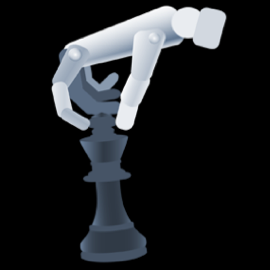 I was yelling at my Siri the other day, when I thought of Cormac McCarthy.
I was yelling at my Siri the other day, when I thought of Cormac McCarthy.
Not long ago, during the filming of the adaptation of his Pulitzer Prize-winning novel, The Road, the world-renowned author was asked by the Wall Street Journal, “What kind of things make you worry?”
His reply?
“If you think about some of the things that are being talked about by thoughtful, intelligent scientists, you realize that in 100 years the human race won’t even be recognizable. We may indeed be part machine and we may have computers implanted. It’s more than theoretically possible to implant a chip in the brain that would contain all the information in all the libraries in the world. As people who have talked about this say, it’s just a matter of figuring out the wiring. Now there’s a problem you can take to bed with you at night.”
Of course, anybody who knows anything knows that Cormac McCarthy is a big damned sis.
Okay, his novels about Godless, scalp-hungry, death-humping marauders of the West during the glory days of Manifest Destiny, and scorched Earth, cannibal-friendly post-apocalyptic U.S.A. may endear him to some wimps. But leave it to an old fart like Cormac to start whining about newfangled advancements in technology that make our challenged existence ever easier to deal with.
(I just ordered Thai food for delivery and looked at very specified pornography between that last paragraph and this parenthesized line. In twenty seconds I had mock duck curry on the way, and a Hi-def glimpse at an Eastern European, no handed nunchuk champion. Can’t make those things happen with a horse and some tarp, Cormac!)
He is referring, in general, to what futurist Ray Kurzweil has coined The Singularity: the inevitable convergence of manmade technology with our own biology—the next phase in an exponential surge in technology that ultimately leaves the current human mind, being, and understanding of existence in the dust. It’s an idea—a methodically structured prediction of our future—that I briefly touched on a few weeks ago in a piece about privatizing love. (Also something that would further help make this no country for old men—or, at least no country for poor lonely old men.)
I know, for many, a superficial explanation of The Singularity conjures up thoughts of Axl, Arnold and pre-Avatar James Cameron. However, ditch the idea of molten metal killers for a second and consider that we may be on our way to what is known as reverse-engineering the human brain—or being able to simulate all discernable brain activity through software. In other words: we take all of the power of human knowledge and capability, and put it into 0s and 1s. Considering that information technology is increasing in ability to process more information at a faster pace than the human brain can possibly ever evolve, well, that means we’re on our way to handing over the wheel that’s steering everything that is to Watson from Jeopardy (or, more like his smarter computer grandson x 1050.)
And that’s not even getting into nanobots that function on a molecular level and can heal my fragile, hairy body when it needs oiled, wire-in alternate realities that can allow me to meet my nunchuck friend in Slovenia, and all the other bad f@#king ass things that come with turning ourselves over to the computers. If we need to feel love, we can just think it, and in a fraction of a second we’ll be programmed to feel the best love the world has ever known.
I’ll tell my computer self that I want to feel like a new mom, on extasy, and I’ll feel it. Hell, as far as I know I’ll be a new mom on extasy. My new robot self is like my role-playing partner/hypnotist, who knows my safe word before I even think it.
(I don’t even think my heartbeat will be necessary—which is fine, because no one was paying me for that work anyway. Heartbeats are just wasted energy.)
Sorry if that’s scary to you, Mr. McCarthy. You’d probably be scared of my Siri, too. Wait, she just told me to not think about you anymore, and to watch a funny YouTube video.








